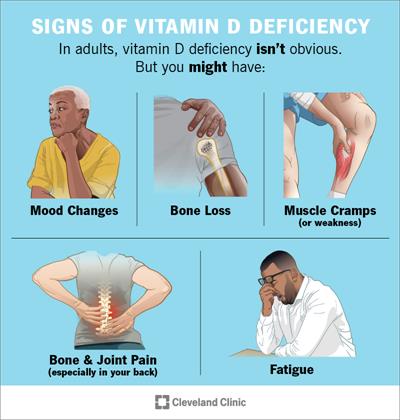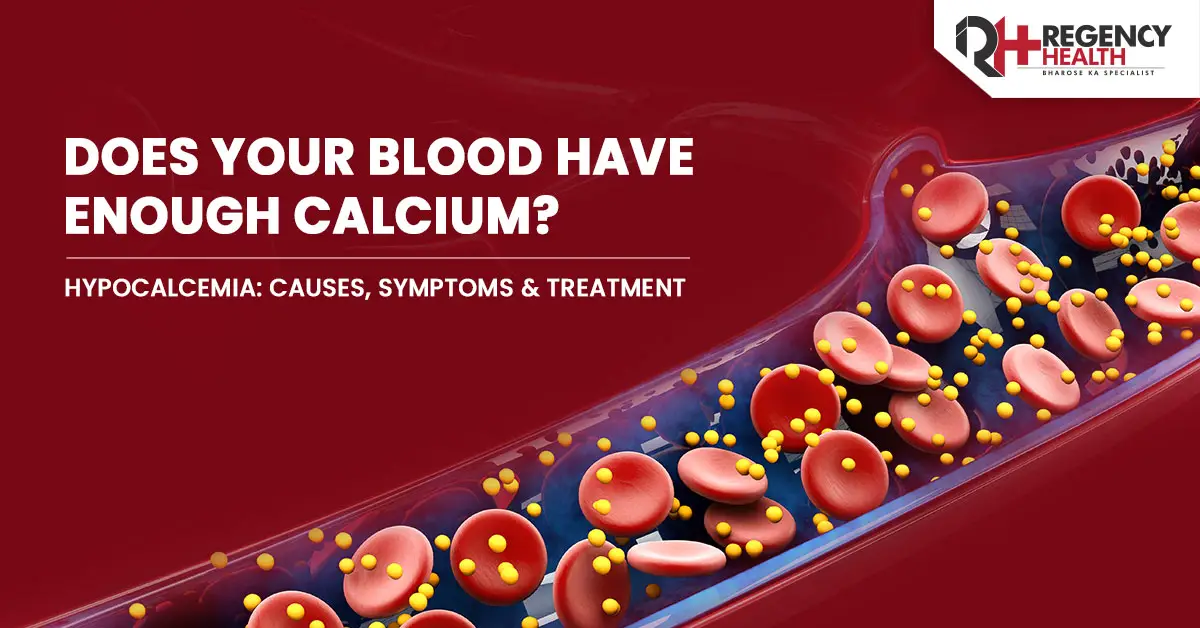Problems with the parathyroid glands, diet, kidney disorders, or certain medications cause calcium deficiency. It can lead to symptoms like dry skin, brittle nails, and muscle cramps. Treatment usually involves adding more calcium to the diet and avoiding excessive calcium supplements without doctor approval to prevent complications like kidney stones.
Complications from calcium deficiency include eye damage, an abnormal heartbeat, and osteoporosis. Hypocalcemia is a treatable condition; symptoms typically disappear once calcium levels are restored.

Causes Of Calcium Deficiency
A low calcium level may result from various factors, such as problems with the parathyroid glands, dietary factors, kidney disorders, or certain medications. Understanding the causes of calcium deficiency is crucial to addressing this condition effectively.
Parathyroid Gland Problems
Issues with the parathyroid glands can contribute to low calcium levels. These small glands in the neck, near the thyroid gland, regulate the amount of calcium in the body. If they malfunction and produce insufficient parathyroid hormone (PTH), calcium absorption from the bones and from the diet decreases, leading to calcium deficiency.
Dietary Factors
The food we consume plays a significant role in maintaining calcium levels. Inadequate intake of calcium-rich food sources can contribute to a lack of this vital mineral. For instance, individuals who follow restrictive diets, such as vegans or those with lactose intolerance, may be at higher risk of calcium deficiency if they do not find appropriate alternative sources.
Kidney Disorders And Medications
The kidneys are responsible for filtering and excreting waste products from the body, including excess calcium. However, certain kidney disorders can interfere with this process, impairing calcium regulation. Specific medications, such as diuretics or corticosteroids, can also increase calcium excretion and contribute to calcium deficiency.
Identifying and addressing the underlying causes of calcium deficiency is crucial to effectively managing this condition. A proper diagnosis and targeted treatment can help restore calcium levels and prevent associated complications.

Credit: www.maxlab.co.in
Symptoms Of Calcium Deficiency
Symptoms of calcium deficiency include dry and scaly skin, brittle nails, coarse hair, and muscle cramps in the back and legs. Treatment usually involves adding more calcium to the diet, but it is essential not to take excessive calcium supplements without medical approval to avoid complications like kidney stones.
Calcium deficiency can manifest in various symptoms affecting different body parts. Identifying these symptoms is crucial for timely diagnosis and treatment. Here are some of the common symptoms associated with calcium deficiency:
Dry, scaly skin, brittle nails, and coarse hair
One of the visible signs of calcium deficiency is dry, scaly skin, brittle nails, and coarse hair. When calcium levels are low for extended periods, skin becomes dry and flaky, and nails become weak and brittle. Additionally, hair may appear coarse and lack shine. These symptoms are often indicators of an underlying calcium deficiency.
Muscle Cramps And Spasms
Another common symptom of calcium deficiency is muscle cramps and spasms. Inadequate calcium levels can disrupt normal muscle function, leading to muscle cramps and involuntary contractions. These cramps usually affect the back and legs and can be pretty uncomfortable. If you experience frequent muscle cramps and spasms, it is essential to consider calcium deficiency as a possible cause.
Neuromuscular And Circulatory Symptoms
Low calcium levels can also cause various neuromuscular and circulatory symptoms. These may include numbness or tingling in the extremities, such as the hands and feet. Additionally, individuals with calcium deficiency may experience irregular heartbeats or changes in blood pressure. These symptoms require immediate attention to prevent further complications.
If you notice any of these symptoms or suspect calcium deficiency, it is essential to consult a healthcare professional for diagnosis and treatment. Treatment usually involves increasing calcium intake through dietary changes and may include calcium and vitamin D supplements prescribed by a doctor. Remember not to self-treat with excessive calcium supplements, as it can lead to adverse effects like kidney stones.
Treatment For Calcium Deficiency
Calcium deficiency is a common problem that can be easily treated. Treatment for calcium deficiency involves various methods to increase calcium levels in the body. Below are some practical ways to treat calcium deficiency:
1. Increase Calcium Intake Through Diet
One of the easiest and most natural ways to treat calcium deficiency is by increasing the intake of calcium-rich foods. Incorporating calcium-rich foods into your daily diet is essential for maintaining optimal calcium levels. Here are some examples of calcium-rich foods:
| Milk and dairy products | Yogurt |
| Cheese | Leafy green vegetables |
| Broccoli | Sardines |
| Salmon | Tofu |
- Include these calcium-rich foods in your daily meals to meet your body’s calcium requirements.
- Don’t forget to choose low-fat or non-fat options to check your overall calorie intake.
2. Prescribed Calcium And Vitamin D Supplements
Increasing calcium intake through diet may sometimes not meet the recommended daily intake. In such situations, healthcare professionals may recommend calcium and vitamin D supplements. These supplements help fill the gap between the required calcium intake and. It is essential to consult with a doctor before starting any supplements.
- Your doctor will evaluate your calcium deficiency levels and prescribe the appropriate dosage of calcium supplements.
- Always follow the prescribed dosage and take the supplements as instructed.
- Combining calcium supplements with vitamin D is beneficial, as vitamin D helps in the absorption of calcium by the body.
3. Avoid Excessive Calcium Intake
While it is essential to increase calcium intake, it is equally important to avoid excessive calcium intake. Excess calcium intake can lead to issues like kidney stones. Therefore, it is crucial to ensure that your intake is well-balanced.
- Avoid taking more than the recommended dosage of calcium supplements without consulting your doctor.
- Stick to the recommended daily intake of calcium, which is usually around 1000–1300 mg for adults.
- Be mindful of consuming calcium from dietary sources and supplements to prevent exceeding the daily limit.
By following these treatment methods, you can effectively manage and overcome calcium deficiency. However, consulting with a healthcare professional for personalized advice based on your specific condition is always advisable.

Frequently Asked Questions Of Calcium Deficiency – Causes, Symptoms And Treatment
What Is The Main Cause Of Calcium Deficiency?
Issues with the parathyroid glands, diet, kidney disorders, or certain medications can cause a low calcium level. It can lead to symptoms like dry skin, brittle nails, and muscle cramps. Treatment involves adding more calcium to the diet and following the doctor’s recommendations to prevent complications.
What Happens When Calcium Is Low In Body?
Low calcium levels in the body can lead to symptoms such as dry scaly skin, brittle nails, and coarse hair. Muscle cramps, especially in the back and legs, are also common. Adding more calcium to the diet is the usual treatment, but excessive calcium supplements without a doctor’s approval can cause kidney stones.
What Is The Fastest Way To Cure Calcium Deficiency?
Adding more calcium to your diet is the fastest way to cure calcium deficiency. However, it is essential not to self-treat by taking excessive calcium supplements without consulting a doctor, as it can lead to kidney stones. Follow your doctor’s recommendations for calcium intake and consider eating calcium-rich foods.
What Is The Treatment For Lack Of Calcium?
The treatment for low blood calcium involves taking prescribed calcium and vitamin D tablets. Eating foods high in calcium can also help maintain normal blood calcium levels. Avoid self-treating with excessive calcium supplements without consulting a doctor to prevent complications like kidney stones.
Conclusion
Calcium deficiency can have severe consequences for our overall health. It is essential to address the causes and symptoms of this condition to prevent complications such as osteoporosis and abnormal heartbeats. Treatment for calcium deficiency usually involves adding more calcium-rich foods to our diet and taking supplements under a doctor’s supervision.
It is essential to avoid self-treatment and excessive calcium intake, as they can lead to kidney problems. By prioritizing our calcium levels, we can maintain strong bones and minimize the risk of developing calcium deficiency-related complications.


